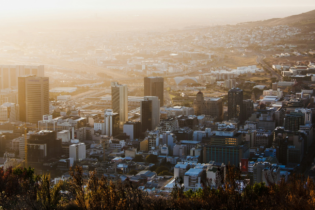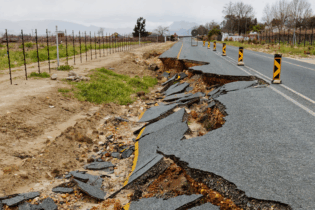
The transport sector is an essential component of the economy and the poor state of Africa’s transport network is hampering effective competition.
This was highlighted during the opening session on the Southern Africa transport Conference currently underway in Pretoria.
Headlining under the theme, ‘Transport – a catalyst for socio-economic growth development opportunities to improve quality of life’, the conference looks at how the transport sector improves the lives of all citizens on the continent. Stakeholder engagement will discuss key infrastructure developments. It will also focus on how urban, public transport and rural transport has the capacity to affect day-to-day living in a positive way.
Speaking on behalf of Transport Minister Dipuo Peters, Chief Director of Freight Logistics Clement Manyungwana told delegates that the region and continent needs to prioritise transport infrastructure and operations. Among those priorities should be roads, railways, sea and airports.
Transport challenges
According to Manyungwana, railways and road infrastructure is key due to the continent being predominantly rural, taking into consideration landlocked countries. Roads are the principal form of transport for freight and passenger transport in Africa.
“It should not be a challenge to secure cost-effective improvement of road networks and maintenance; the user-pays principle remains the solution,” said Manyungwana.
He added that the poor and inadequate state of Africa’s transport network hampers effective competition on the global market. Effective transport networks are a key component of investment climate, enabling people and goods access to markets and reducing the cost of doing business. Intra-African trade stands at less than 11% of all African GDP and Africa’s share of the world trade is only 2%.”
“Africa’s 4 challenges are not only lack of investment in infrastructure but also the distance between the hinterland and the ports. Efficiency of ports and logistics is particularly important for Africa’s 15 landlocked countries, whose average transport costs are nearly 50% higher than for coastal economies.”
Roads and climate change
Manyungwana emphasised that, as the developing world rapidly urbanises, there is an opportunity to build safer, cleaner and more efficient and accessible transport systems that reduce congestion and pollution, facilitate access to jobs and lower transport energy consumption.
“As a region and continent, we never adequately prioritise issues of climate change,” said Manyungwana. Transport accounts for about 60% of global oil consumption, 27% of all energy use and 23% of world CO2 emissions. With motorisation rates in the rise, this share is expected to grow dramatically. In addition to this, urban air pollution largely linked to transport kills an estimated 800 000 people each year.
Plan of action
Manyungwana called for an action plan from the conference stemming from the recommendations and solution made in the conference presentation. “The plan, I believe would assist us as counterparts to commit to all the recommendation and solutions proposed in order to avoid this conference being a talk shop.”







